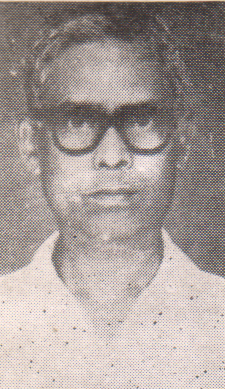Their first son Yashwanta was unwell from rheumatism from his very young days. The two children after him died early on. Compared to his university study, her husband did not have any moral sentiment/care for his family, and that was not proper--this idea would bother Ramabai. She would feel that just as the women around her were happy in their married lives, she should similarly be happy. That is why once in a while she would request Bhimrao to put his books aside and pay attention to his family life. At that time he would just laugh it off. Or sometimes he would get into a quarrel and say hurtful, condescending things, and would not stop short of raising his hand to her. When such fights escalated, Ramabai would silently do her chores like a machine. Sometimes her silence would last for four months. At such times Bhimrao would have to surrender. He would make excuses to first begin a conversation with Ramabai.
There was nothing else that would lead to such dire loggerheads between the husband and wife. Whenever it happened, it was on the topic of the husband’s study. Sometimes when Ramabai would be adamant, her husband would take out the final arrow in his quiver. He would say, "If you keep bringing such hurdles into my university study, I will marry a second woman. An illiterate woman like you, what do you know about the value of that [education]!" At that time Ramabai would say with great pride, "Go ahead, marry as many women as you like. But I will not let any one of them set foot in my house!" Most of the time, such fights would take a humorous form and in the end she would be content....
Ramabai made a firm resolve in her mind, and gave him unconditional permission to go to London to complete his hitherto incomplete university study. Moreover, she would make sure that no kind of obstacle emerged in her husband’s study. Seven or eight people in one room, and Bhimrao’s study in the other room. Of the people in the house, their suffering, shortage of money, hard work, etc.--all these things, she would make sure that her husband did not have an inkling of. She would make careful arrangements so that the children in the house ,and those of her neighbors, would not make a ruckus in front of her husband’s room. The husband would remain engrossed in reading and taking notes from his big fat books of economics. Having locked the door from inside, he would be completely engrossed in the trance-like state [samadhi] of studying. Ramabai would get tired of calling him again and again from outside when it was time to eat, and yet the husband would not get out of the trance of studying. Sometimes, without eating, he would be in this trance all day and all night. Ramabai would have to [as a religious duty] abstain from eating, along with him!
